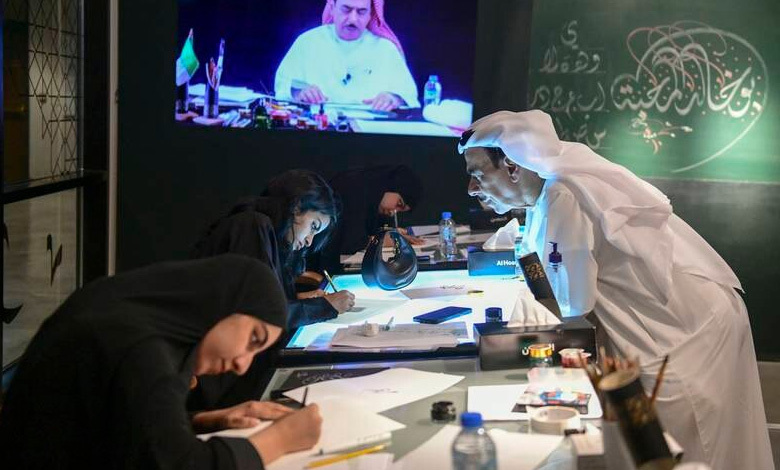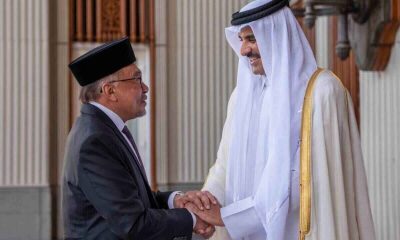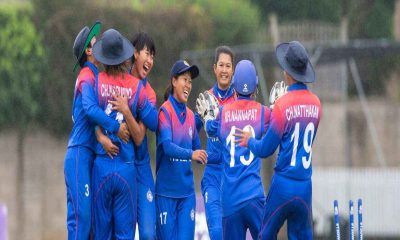Global education is developing and reaching new heights, and the
Gulf Cooperation Council (GCC) countries are emerging as trailblazers in adopting innovative technologies to enhance the learning experience. One such technology that is making waves in the region’s classrooms is augmented reality (AR). Augmented reality is not a futuristic concept anymore; it is becoming an integral part of the GCC’s education system, revolutionizing the way students learn and teachers instruct.
Unlocking the Future: Tech-Enhanced Learning in GCC Schools
The Gulf region has made significant progress in terms of literacy and education over the last few decades. It has expanded from founding schools to helping students select postsecondary institutions that complement their skills and the country’s economic objectives.
The willingness of Gulf residents to achieve academic success has been the most significant factor in supporting literacy and education initiatives, even though strategic alliances with international organizations have played a significant role.
When it comes to access to and literacy with technology, Arab youth have an advantage. I believe the region will do well in changing its educational systems in the upcoming decades to meet the increasing demands.
Globally, artificial intelligence (AI) is changing systems, and the educational system is no exception. According to confirmation from the UN Educational, Scientific and Cultural Organisation (UNESCO), artificial intelligence (AI) has the potential to tackle some of the biggest problems facing education. In addition to spurring advancement towards the UN’s Sustainable Development Goal 4, which calls for inclusive and equitable quality education for all, it can introduce much-needed innovation in teaching and learning. Naturally, there are obstacles to overcome, and disruptive technologies like artificial intelligence (AI) must be implemented in a way that upholds justice and prevents the spread of inequality. I think the Gulf region has a distinct advantage in this area, especially in light of the rise in Arab women choosing STEM (science, technology, engineering, and math) fields in recent years and the fact that they frequently outnumber men in terms of enrollment in higher education.
Read More: China’s Gulf Connection: Expanding Horizons in Cooperation
In Western countries, computer science programs are predominantly attended by men. But in this region, women are leading the way, accounting for 70–80% of enrolment in the UAE and Saudi Arabia and roughly 40% in all Arab countries. The New York University in Abu Dhabi released these statistics and pointed out that they are much higher than those found in other regions of the world.
For instance, women make up 15–20% of computer science students in the US. Arab women possess special qualifications for tech. With their education and local knowledge, they can spearhead a change in the way education is provided in the area and establish standards that other countries can strive to meet.
Governments, academic institutions, and tech leaders have never had a better opportunity to collaborate with these experts, recent graduates, and students in computer science and related fields to brainstorm ideas for the future of education—particularly about artificial intelligence (AI) and technology. There are several ways AI can help with learning needs.
Additionally, by providing students of all levels with immersive experiences via virtual and augmented reality, there is potential to enhance learning models. This is already a rapidly expanding aspect of healthcare education, where medical students are learning how to perform surgery through virtual support, and nursing students can view a situation through the eyes of patients.
More virtual and augmented reality learning components should be implemented by educational institutions throughout the Gulf Cooperation Council (GCC). This is especially important to provide students with perspectives that they might not otherwise be able to experience in a classroom or university.
The COVID-19 pandemic has led to a rise in online, remote, and hybrid learning, which could provide students in the Gulf region with countless opportunities. However, governments must provide us with substantial support, especially through strategic initiatives and collaborations with the tech industry and the education sector.
Students’ approaches to learning have also been significantly altered by app innovation and gamification in the classroom. There is a blurring of the boundaries between play and learning as more kids have access to smart devices. Once more, there is a lot of promise in this area, especially in the Gulf region.
Enhancing learning experiences in the region requires a foundation of uniform tech literacy and widespread tool access. This needs to be ensured, and governments should support innovation in technology and education. Along with creating more jobs and contributing to economic diversification goals, these initiatives will also open up new, sustainable revenue streams.
The world is at a fascinating crossroads. Systems are evolving and growing more quickly than in the past. The seeds for future growth have been sown by our governments and citizens, but we still need to keep ahead of the curve and make prudent use of our resources. Without a doubt, our people are our greatest asset, so to support our young people’s education and learning, we must carefully plan, make the most use of our talent, and allocate additional resources.
So, it is not just a trend but a transformative force that is shaping the future of education in the GCC.






















